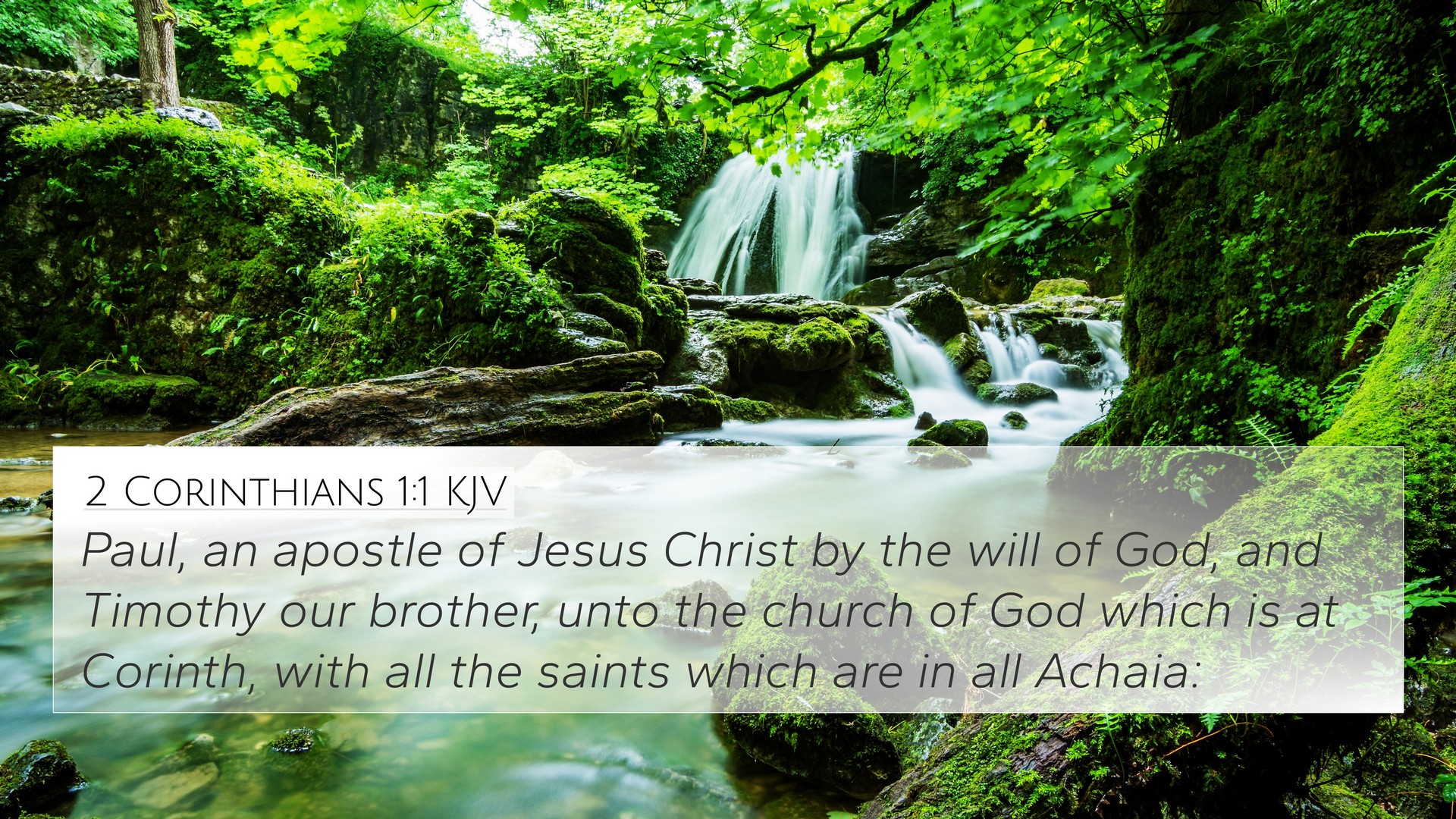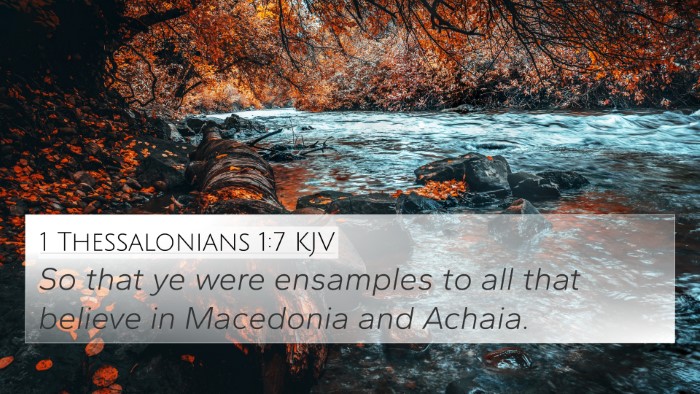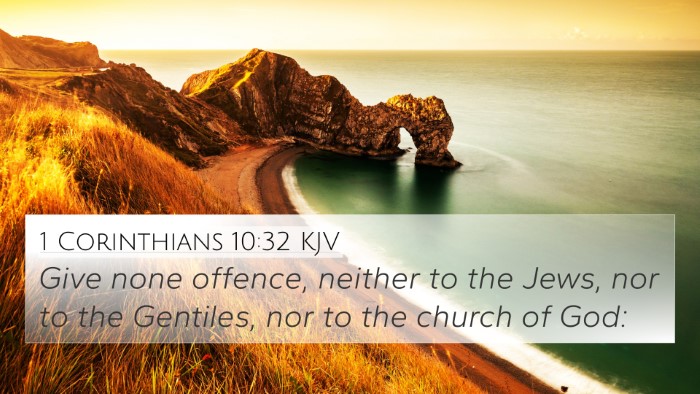This section features a detailed cross-reference designed to enrich your understanding of the Scriptures.
Below, you will find carefully selected verses that echo the themes and teachings related to 2 Corinthians 1:1 KJV. Click on any image to explore detailed analyses of related Bible verses and uncover deeper theological insights.
 2 Timothy 1:1 (KJV) »
2 Timothy 1:1 (KJV) »
Paul, an apostle of Jesus Christ by the will of God, according to the promise of life which is in Christ Jesus,
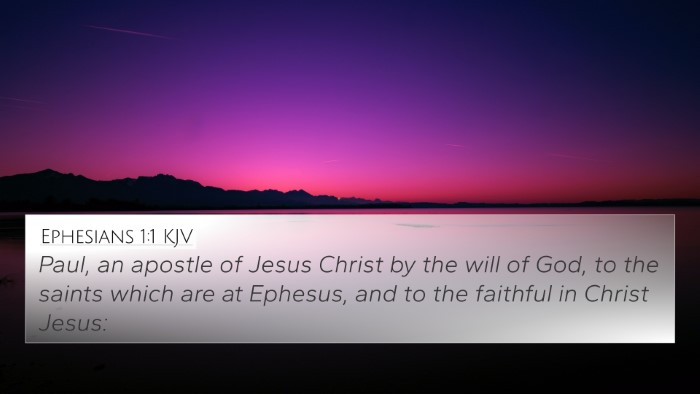 Ephesians 1:1 (KJV) »
Ephesians 1:1 (KJV) »
Paul, an apostle of Jesus Christ by the will of God, to the saints which are at Ephesus, and to the faithful in Christ Jesus:
 Philippians 1:1 (KJV) »
Philippians 1:1 (KJV) »
Paul and Timotheus, the servants of Jesus Christ, to all the saints in Christ Jesus which are at Philippi, with the bishops and deacons:
 1 Corinthians 16:10 (KJV) »
1 Corinthians 16:10 (KJV) »
Now if Timotheus come, see that he may be with you without fear: for he worketh the work of the Lord, as I also do.
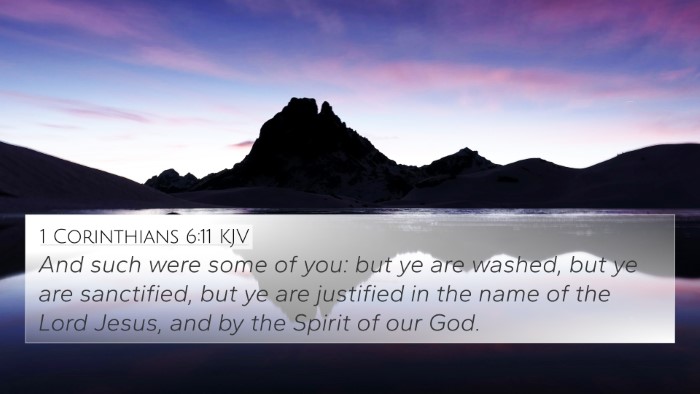 1 Corinthians 6:11 (KJV) »
1 Corinthians 6:11 (KJV) »
And such were some of you: but ye are washed, but ye are sanctified, but ye are justified in the name of the Lord Jesus, and by the Spirit of our God.
 1 Timothy 1:1 (KJV) »
1 Timothy 1:1 (KJV) »
Paul, an apostle of Jesus Christ by the commandment of God our Saviour, and Lord Jesus Christ, which is our hope;
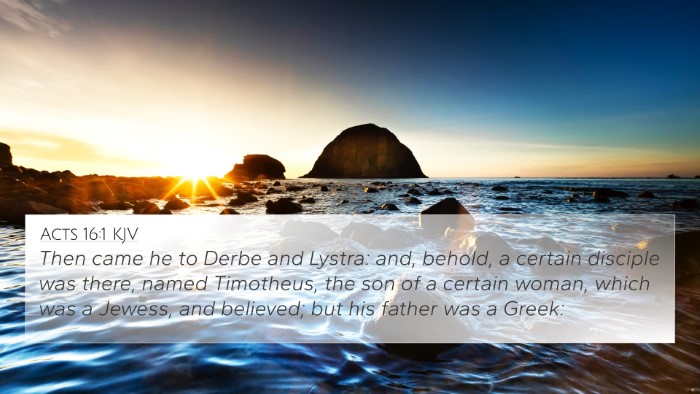 Acts 16:1 (KJV) »
Acts 16:1 (KJV) »
Then came he to Derbe and Lystra: and, behold, a certain disciple was there, named Timotheus, the son of a certain woman, which was a Jewess, and believed; but his father was a Greek:
 1 Thessalonians 1:1 (KJV) »
1 Thessalonians 1:1 (KJV) »
Paul, and Silvanus, and Timotheus, unto the church of the Thessalonians which is in God the Father and in the Lord Jesus Christ: Grace be unto you, and peace, from God our Father, and the Lord Jesus Christ.
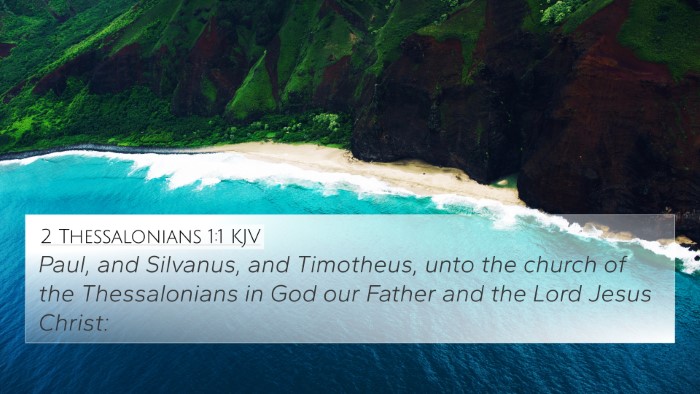 2 Thessalonians 1:1 (KJV) »
2 Thessalonians 1:1 (KJV) »
Paul, and Silvanus, and Timotheus, unto the church of the Thessalonians in God our Father and the Lord Jesus Christ:
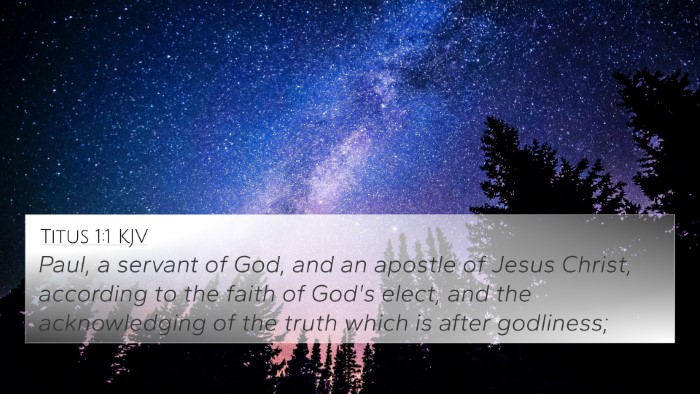 Titus 1:1 (KJV) »
Titus 1:1 (KJV) »
Paul, a servant of God, and an apostle of Jesus Christ, according to the faith of God's elect, and the acknowledging of the truth which is after godliness;
 Philippians 2:19 (KJV) »
Philippians 2:19 (KJV) »
But I trust in the Lord Jesus to send Timotheus shortly unto you, that I also may be of good comfort, when I know your state.
 Galatians 1:1 (KJV) »
Galatians 1:1 (KJV) »
Paul, an apostle, (not of men, neither by man, but by Jesus Christ, and God the Father, who raised him from the dead;)
 2 Corinthians 9:2 (KJV) »
2 Corinthians 9:2 (KJV) »
For I know the forwardness of your mind, for which I boast of you to them of Macedonia, that Achaia was ready a year ago; and your zeal hath provoked very many.
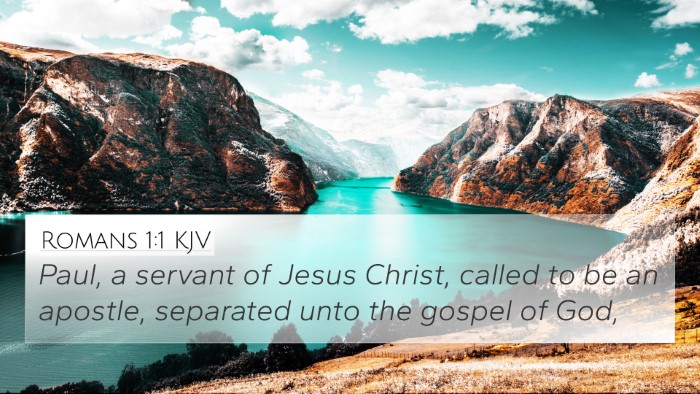 Romans 1:1 (KJV) »
Romans 1:1 (KJV) »
Paul, a servant of Jesus Christ, called to be an apostle, separated unto the gospel of God,
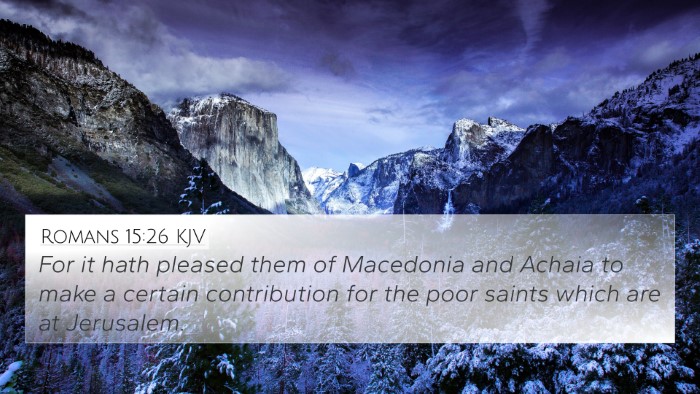 Romans 15:26 (KJV) »
Romans 15:26 (KJV) »
For it hath pleased them of Macedonia and Achaia to make a certain contribution for the poor saints which are at Jerusalem.
 Romans 16:5 (KJV) »
Romans 16:5 (KJV) »
Likewise greet the church that is in their house. Salute my well-beloved Epaenetus, who is the firstfruits of Achaia unto Christ.
 Romans 16:21 (KJV) »
Romans 16:21 (KJV) »
Timotheus my workfellow, and Lucius, and Jason, and Sosipater, my kinsmen, salute you.
 1 Corinthians 16:15 (KJV) »
1 Corinthians 16:15 (KJV) »
I beseech you, brethren, (ye know the house of Stephanas, that it is the firstfruits of Achaia, and that they have addicted themselves to the ministry of the saints,)
